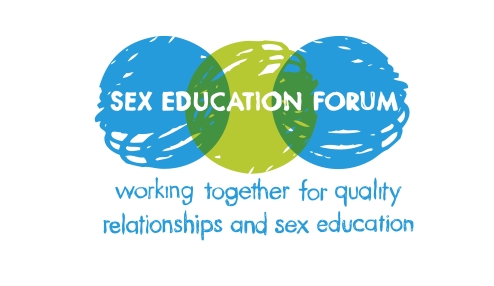I’m delighted to be here this evening to celebrate the Sex Education Forum’s 30th birthday. As an old campaigner, in more senses than one, it’s lovely to see many former colleagues I’ve worked with over the years but also wonderful to meet so many new people who are carrying on the fight we started all those years ago.
I know you all feel as passionately I do that all children and young people are entitled to learn about sex and relationships at school. It was that passion that led me to set up the Sex Education Forum in 1987 and I would like to tell you about how it all started.
In May 1986 I began working at the National Children’s Bureau as Company Secretary and Director of Finance and Administration. Shortly afterwards, a copy of Jenny lives with Eric and Martin, probably the first children's book in English to discuss homosexuality, was discovered in a school library in London. Hysterical outbursts in the press against school sex education and teaching about homosexuality followed and led to legislation that year to restrict school sex education and later in 1988 to the infamous Section 28.
Horrified by the 1986 furore, I was deeply concerned that FPA and Brook were the only voices of reason heard in the debate. They were often dismissed with ‘well they would say that wouldn’t they’. But I knew they were not lone voices. So I decided to explore setting up a broad alliance of organisations to support children’s right to sex education in schools. I spoke to Alastair Service who was the Director of FPA who told me he had had the same idea but agreed it would be much better for such a body it to be based at the National Children’s Bureau.
My list of organisations to invite to a meeting to discuss this idea comprised Relate, SPOD, an organisation campaigning for the sexual health rights of people with disabilities, Health Education Authority, Family Planning Association and Brook, plus NCB of course. One of my NCB colleagues recommended that I also ask the Church of England Marriage Education Panel and the Catholic Marriage Advisory Council (Marriage Care). With some trepidation because I had no idea what it would be like to work with them, I followed her advice. At the beginning of the first meeting in November 1986, there was definitely some tension in the air and the discussion began cautiously. And then Margaret Vincent from Marriage Care said that she used some of Brook’s publications and thought them excellent. You could almost hear the sigh of relief that went round the room as everybody relaxed and a positive trusting relationship began to develop.
Over the next year the eight of us worked together to produce the first statement of aims for the Sex Education Forum, to arrange the Forum’s public launch and to organise a conference for professionals who taught sex education in schools.
We definitely weren’t just the usual suspects promoting sex education.
For me it was always important that we weren’t just eight individuals sitting in a room together but eight organisations that were fully committed to what we were doing. Therefore, it was integral to our work that all our organisations adopted the Statement of Aims, which they did.
In November 1987 the Sex Education Forum was launched with these eight members including the two religious organisations. We definitely weren’t just the usual suspects promoting sex education. Nonetheless journalists were sceptical that we could agree about much, and certainly not about teaching about topics such as homosexuality and abortion. How wrong they were.
Teachers responded enthusiastically. The launch conference was a sell-out and everybody who had booked a place came on the day, a rare occurrence in my experience. Participants talked movingly about their feelings of isolation and frustration at the lack of support for their work. By the end of the day, it was clear that this new body was sorely needed and that it must both influence public policy and provide practical advice and resources for professionals.
In the days after the conference I received many requests for advice and support but I already had a busy job and also lacked the knowledge and skills to respond. As a first step though I asked the NCB’s information service to put together a list of resources available to teachers, which sold like hot cakes.
But what we really needed was a dedicated member of staff with the appropriate skills to take the Forum forward. With help from Doreen Massey at FPA, I applied to the Department of Education for a grant. Civil servants were very keen to help but time went by and I kept phoning but nothing happened.
Then one day I got a phone call to say that the Conservative Minister responsible, for Sex Education, Alan Howarth, wanted to see me. I was astonished. I had never been summoned by a Conservative Minister before. I decided I needed backup. So I asked Dilys Went from Brook and Margaret Vincent from Marriage Care to accompany me to bring gravitas and respectability to promote our cause. Alan Howarth had been a teacher and was very sympathetic and the meeting went well. We left feeling hopeful about the outcome. We soon received confirmation of the grant.
I learnt a long time afterwards, though, that our funding was discussed by the whole ministerial team before it was agreed.
Thus in the summer of 1990 with our funding from the Department of Education and work could really begin. We advertised for a Development Officer. There were only six applicants for the job but five of them were excellent candidates. From them we appointed the wonderful Rachel Thomson, who is now a Professor at the University of Sussex. Her first action was to initiate a study of secondary school sex education policies. She discovered that schools had a very hazy concept of what such policy should look like. As a result, she developed the Forum’s next very popular publication: Developing and Reviewing a Sex Education Policy.
Back in 1987, I could have never imagined the SEF as the large and influential body it is today
Many teachers were concerned that they knew little about the attitudes to sex education of the families of many of the children in their classes. Rachel responded to this need through a project which asked individuals from different religious backgrounds to answer a series of questions including their attitude to marriage, sex and contraception. Included in this group, was an FPA trainer who had always considered her training to be ‘value free’ and who found the exercise very challenging. The resulting publication was also widely used.
Rachel was also a great campaigner and builder of alliances. Together we expanded the membership of the Forum and established it as a powerful voice for Sex and Relationships education in Parliament and with the media. And when she decided to become an academic, Gill Frances took over and further strengthened the Forum and its impact. And since then the Forum has continued to be successful in attracting brilliant staff and has had great leadership from its chairs, mostly recently Jane Lees, and the Advisory Group members.
Back in 1987, I could have never imagined the SEF as the large and influential body it is today. It has achieved so much in improving the provision of sex and relationship education and support for teachers and other professionals providing it.
And now as we celebrate the Sex Education Forum’s 30th birthday, we are at the beginning of a new era with statutory relationship and sex education soon to be compulsory in all schools in England. A goal we have long fought for. But we have yet to see the guidance, parents still have the right to withdraw their children from sex education and sadly, the forces of darkness and ignorance are still doing all they can to deny children and young people the education they are entitled to and that they desperately want.
So the Sex Education Forum and the work you all do is as necessary today as it was in 1987. I know you will keep up the fight and look forward to celebrating your future achievements with you.
Anne Weyman
President, Sex Education Forum
15 November 2017




Share